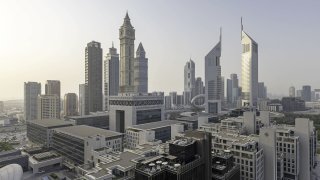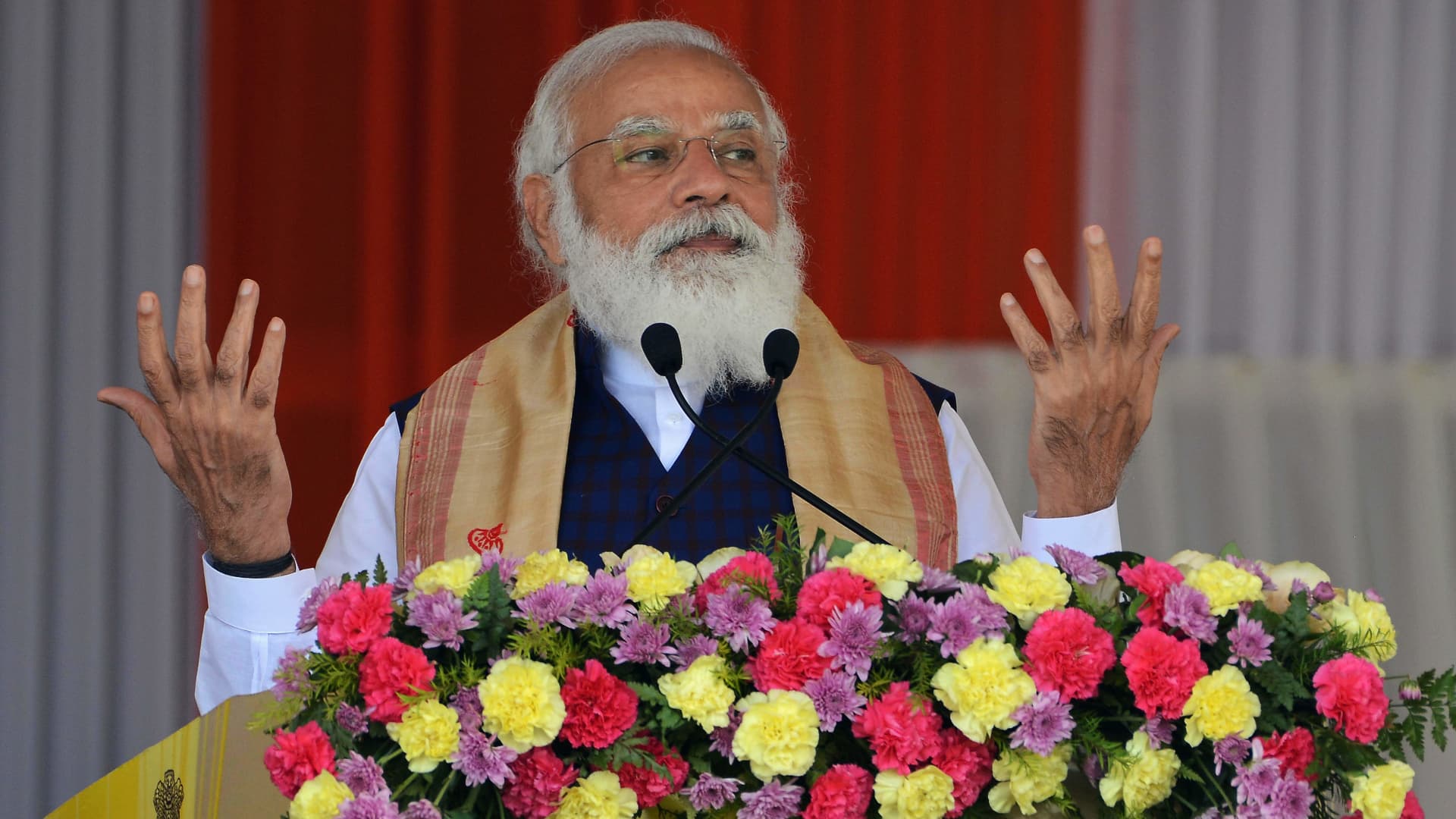
- New deal between UAE and India could grow bilateral trade in goods to over $100 billion and trade in services over $15 billion in the next five years.
- New economic partnership agreement includes reduced tariffs and enhanced market access for businesses on both sides.
DUBAI, United Arab Emirates — The United Arab Emirates and India have signed a wide ranging trade and investment pact that is expected to boost bilateral trade to over $100 billion within the next five years.
The UAE-India Comprehensive Economic Partnership Agreement (UAE-India CEPA) is the first bilateral trade accord concluded by the UAE, and India's first bilateral trade agreement in the Middle East and North Africa region.
Get San Diego local news, weather forecasts, sports and lifestyle stories to your inbox. Sign up for NBC San Diego newsletters.
"India is one of our most important strategic partners and this deal brings us closer than ever before," UAE de facto leader, Sheikh Mohamed bin Zayed Al Nahyan, said during a virtual summit with India's Prime Minister, Narendra Modi, on Friday.
"This deal promises to provide significant benefits to UAE and Indian businesses, including reduced tariffs and enhanced market access, while also breathing new life into trading corridors from Africa to Asia and laying the foundations for growth and prosperity that will benefit the entire region," he added.
"The Agreement reflects the deep friendship, shared vision and the trust between the two countries. I am sure this will usher in a new era in our bilateral economic relations," Prime Minister Modi said.
The partnership marks a deepening of ties between the UAE and India. The UAE is India's third largest trade partner, and bilateral trade is expected to surpass $60 billion in the current financial year. India also ranks as the UAE's number one trading partner for non-oil exports, accounting for nearly 14% of the UAE's total non-oil exports globally.

"There will be tariff elimination on more than 80% of the goods that go to India, and significant economic benefits for both countries by having more market access, new attractions for investments, and creating opportunities in key sectors," Thani Al Zeyoudi, UAE minister of state for foreign trade, told CNBC in an interview on Thursday.
Money Report
In addition to growing bilateral trade in goods to over $100 billion within the next five years, the deal is also expected to boost trade in services to over $15 billion. The minister said he expects the deal to grow UAE GDP by 1.7% in the upcoming ten years, boost exports, and create more than 140,000 jobs.
Sectors set to benefit, according to the minister, include business services, telecommunications, construction and development, education, the environment, the financial sector, health services, tourism, hospitality and maritime and air transport services, among others.
Israel, Indonesia deals coming soon
The latest agreement comes amid a rush of diplomatic and economic deal-making in the Emirates. The UAE signed a similar economic pact with Turkey this week, seeking to mend regional ties to enhance its economic recovery. The UAE is also in the final stages of signing agreements with Israel and Indonesia, and aims to expand bilateral trade ties with the Philippines in the year ahead.
"We're almost done with our Indonesian counterparts and we're optimistic that it's going to be signed before the end of Expo," Al Zeyoudi said. "We're now in our fourth round of negotiations with our Israeli counterparts and our target is to finalize it before June," he added.
The trade deals come as the UAE aims to boost its credentials as a primary business and trading hub in the region, and accelerate its economic diversification efforts as it faces rising competition from Saudi Arabia.
"We're going to continue maintaining our regional and global leadership when it comes to trade and being a trade hub," Al Zeyoudi said. "We're very optimistic about 2022, and we're very optimistic that (UAE-India CEPA) will add to the growth mode that we're in now," he added.






